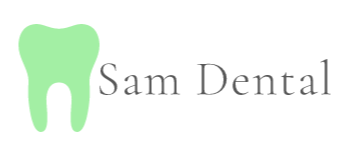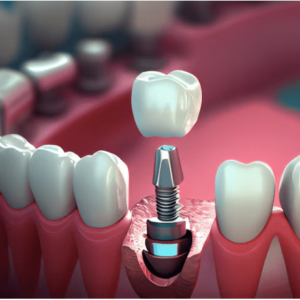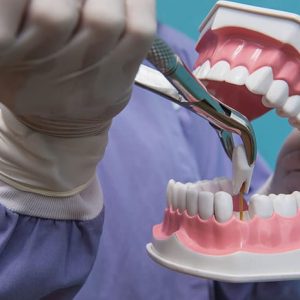Stress has become an almost unavoidable part of daily life. From demanding jobs to personal obligations, the pressures of modern living can have far-reaching effects on our health. While much attention is given to how stress impacts mental and cardiovascular health, its influence on dental health often goes unnoticed. This oversight can have significant consequences, as stress doesn’t just affect your mind—it can also leave a lasting imprint on your smile.
The Silent Erosion: Understanding Stress and Dental Health
Stress manifests in various physical ways, many of which directly impact oral health. One of the most common stress-induced dental issues is bruxism, or teeth grinding. This unconscious habit, often occurring during sleep, can lead to tooth wear, fractures, and even temporomandibular joint disorders (TMJ). Over time, the constant grinding can erode enamel, leading to increased sensitivity and a higher risk of cavities.
Furthermore, stress can impair immunity, increasing the body’s susceptibility to infections, such as periodontal disease. Reduced salivary flow brought on by high stress levels can also cause dry mouth. In order to neutralise acids and remove food particles from the mouth, saliva is essential; without it, the risk of gum disease and tooth decay rises.
The Aesthetic Impact: How Stress Affects Your Smile
Beyond the physical health implications, stress can adversely affect the aesthetics of your smile. The wear and tear from bruxism can lead to uneven teeth, chips, and cracks, detracting from an otherwise healthy appearance. Additionally, stress can contribute to poor oral hygiene habits. When overwhelmed, individuals may neglect regular brushing and flossing, leading to plaque build-up, staining, and bad breath.
Dr. Sahil Patel, a leading cosmetic dentist at Marylebone Smile Clinic in London, notes that many patients are unaware of how significantly stress can impact their oral health. “We often see patients who are concerned about the appearance of their teeth but don’t realise that stress is a contributing factor,” he says. “Addressing the root cause is essential for both oral health and overall wellbeing.”
Veneers London: A Solution for Stress-Affected Smiles
For those whose smiles have suffered due to stress-related dental issues, cosmetic dentistry offers solutions to restore both function and aesthetics. Dental veneers are a popular option for correcting imperfections such as chips, cracks, and uneven teeth caused by grinding.
Veneers are an excellent way to revitalise a smile that’s been damaged over time.
By integrating treatments like veneers, Marylebone Smile Clinic offers some of the best veneers London has to offer. This not only improve your smile’s appearance but also boost your confidence, potentially reducing stress levels in a positive feedback loop.
Managing Stress for Better Oral Health
While cosmetic solutions can repair damage, preventing stress-induced dental issues is equally important. Managing stress effectively can safeguard your oral health and reduce the need for extensive dental work.
Practice Relaxation Techniques: Incorporate activities such as meditation, yoga, or deep-breathing exercises into your daily routine. These practices can help lower stress levels and reduce the likelihood of bruxism.
Maintain a Balanced Diet: Nutrition plays a crucial role in managing stress and maintaining oral health. Foods rich in calcium and magnesium can strengthen teeth, while reducing sugar intake can minimise the risk of decay.
Stay Hydrated: Drinking plenty of water helps maintain saliva production, essential for protecting teeth against bacteria and acids.
Regular Dental Check-ups: Routine visits to the dentist can catch early signs of stress-related dental issues. Dentists can provide protective devices like mouthguards to prevent damage from grinding.
The Role of Professional Care
Professional intervention is vital when dealing with the dental repercussions of stress. Dentists can offer tailored solutions to address both the symptoms and underlying causes of dental problems.
Understanding the patient’s lifestyle and stress factors allows us to provide more effective, long-term solutions.
This holistic approach may include referrals to other healthcare professionals for stress management, ensuring that patients receive the support they need beyond dental care.
The Psychological Impact of a Healthy Smile
A healthy smile does more than enhance physical appearance; it can also improve mental health. Confidence in one’s smile can lead to increased self-esteem and reduced social anxiety. This boost can create a positive cycle, where reduced stress leads to better oral health, which in turn enhances confidence.
Lifestyle Changes for Lasting Results
Implementing lifestyle changes can have a profound impact on both stress levels and dental health. Here are some strategies to consider:
Exercise Regularly: Physical activity releases endorphins, natural stress relievers that can help reduce the tendency to grind teeth.
Establish a Sleep Routine: Adequate sleep is essential for stress management. A regular sleep schedule can decrease the likelihood of nocturnal bruxism.
Limit Caffeine and Alcohol: Both substances can increase anxiety and disrupt sleep patterns, exacerbating stress and its dental manifestations.
Seek Professional Help: If stress becomes unmanageable, consulting a mental health professional can provide coping strategies and support.
The Connection Between Oral Health and Overall Wellness
The mouth is often referred to as the gateway to the body, and for good reason. Poor oral health can lead to systemic issues, including heart disease and diabetes. Conversely, maintaining good dental hygiene can have positive effects on overall health.
Stress complicates this relationship by acting as a common denominator that affects both oral and general health. By recognising and addressing stress, individuals can take proactive steps toward comprehensive wellbeing.
Future Perspectives: Advancements in Dental Care
Advancements in dental technology are making it easier to address stress-related dental issues. Innovations such as digital smile design and minimally invasive veneer techniques allow for personalised and efficient treatments.
Technology is revolutionising how we approach dental care. Patients can now see a digital preview of their new smile before treatment begins, which can alleviate anxiety and improve satisfaction.
These advancements, coupled with increased awareness of the impact of stress on dental health, are paving the way for more integrated and patient-centred care.
Conclusion: Taking Control of Your Dental Health
Stress may be an inevitable part of modern life, but its impact on your dental health doesn’t have to be. By understanding the connection between stress and oral health, you can take proactive steps to protect your smile.
Whether it’s adopting stress management techniques, making lifestyle changes, or seeking professional dental care, there are numerous ways to mitigate the effects of stress on your teeth. For those in need of restorative solutions, options like veneers in London offer a pathway to reclaiming a confident and healthy smile.





